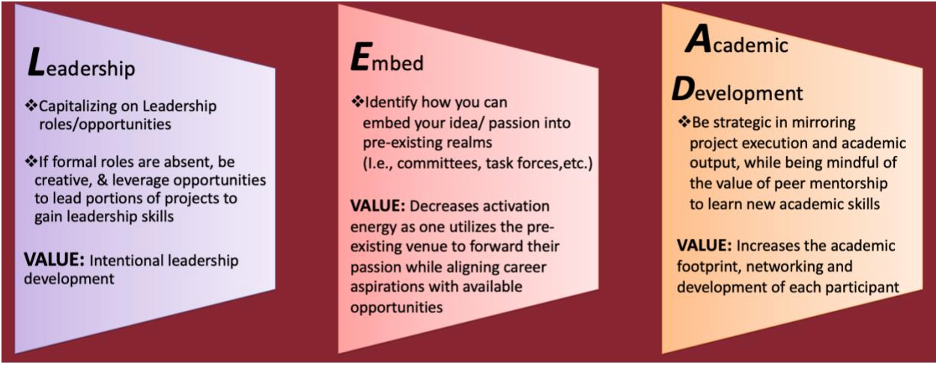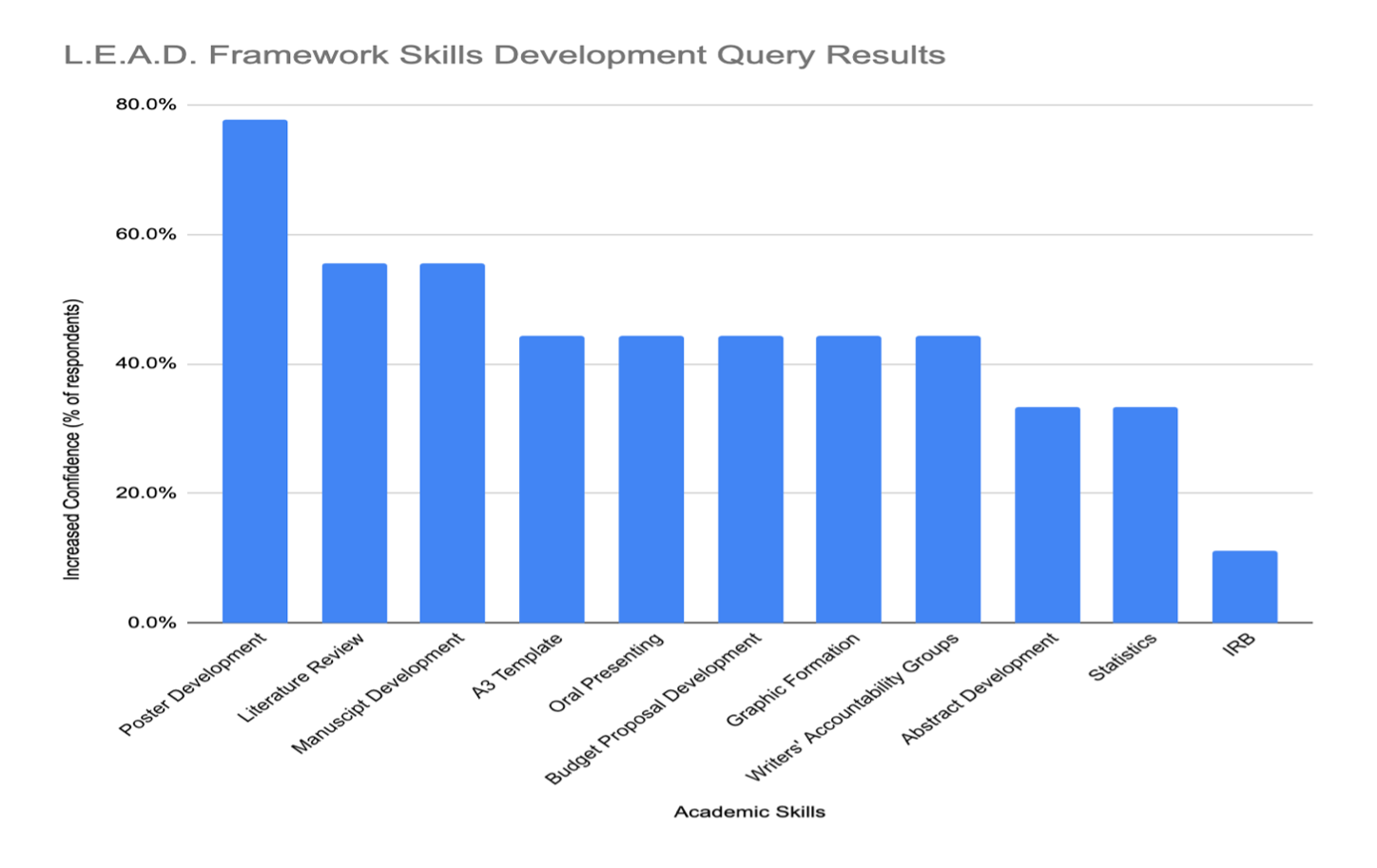Background: Research suggests correlations between career satisfaction and lower levels of burnout.(1,2) Yet, Advanced Practice Providers (APPs) are less frequently involved (< 50%) in teaching, research, QI and leadership training suggesting opportunities in these realms.(3) To bridge this gap and increase APP career satisfaction, researchers developed a novel framework L.E.A.D. Figure 1 In 2022, L.E.A.D. was embedded in a hospital level APP Professional Advancement Model (PAM) taskforce. Following 1 year of L.E.A.D., taskforce members were surveyed to assess framework satisfaction. All 11 members responded with 100% reporting increased professional satisfaction, 91% self-reporting learning a new academic skill, and 73% expressing increased interest in academia. All reported ongoing support of the L.E.A.D. framework for PAM development.
Purpose: Describe the multiyear evaluation of a novel framework, L.E.A.D. 1) Leadership (L) roles/opportunities; 2) Embedding (E) your idea/passion project within recognized avenues; 3) Academic Development (A.D.), as an avenue to diversify APP careers and provide professional satisfaction.
Description: Following the initial success, researchers aimed to evaluate the specific impact of the tenets of the L.E.A.D. framework. At the start of year two, the L.E.A.D. champion re-familiarized the 10 remaining taskforce participants to the individual steps of the framework via PowerPoint presentation. The taskforce collectively re-committed to the model. In addition, two taskforce participants took on a more active role, serving as L.E.A.D. champions. The taskforce, which aims to develop an institutional PAM program, focused their efforts on a three-pronged agenda: 1) Continue to disseminate their project journey academically 2) Engage with institutional stakeholders to garner PAM support 3) Identify a physician champion to increase bidirectional mentorship amongst physician, NPs and PAs. Deliverables included 1) presenting four accepted poster and abstract presentations locally and nationally regarding the institution’s current state of APP professional development, 2) arranging meetings with Magnet representatives, human resources, Chief Nursing Officer and Chief Medical Officer, 3) Identifying a physician champion and 4) Submitting a draft proposal for a hospital level PAM to be considered for the fiscal year (FY) 25 budget. The tenets of L.E.A.D. were woven throughout each. Following the above activities, the same taskforce members were resurveyed in late 2023 to evaluate the specific impact of the L.E.A.D. framework on their experience. With a 90% response rate, 88% strongly or very strongly agreed they were better able to recognize opportunities for leadership. 88% strongly or very strongly agreed they have been able to identify how to embed their career passions into pre-existing realms such as other committees or taskforces. Respondents were also queried about what academic skills development they had gained, reporting increased confidence in a variety of academic skills. Graph 1
Conclusions: By utilizing L.E.A.D., for a second year, a 10-person hospital level taskforce increased their academic development and peer mentorship showing that academic hospitalists can leverage this framework to further their footprint beyond their individual sections. Survey data showed that the L.E.A.D. framework can help APPs increase their leadership and academic skills and identify pre-existing realms to further their career passions.


